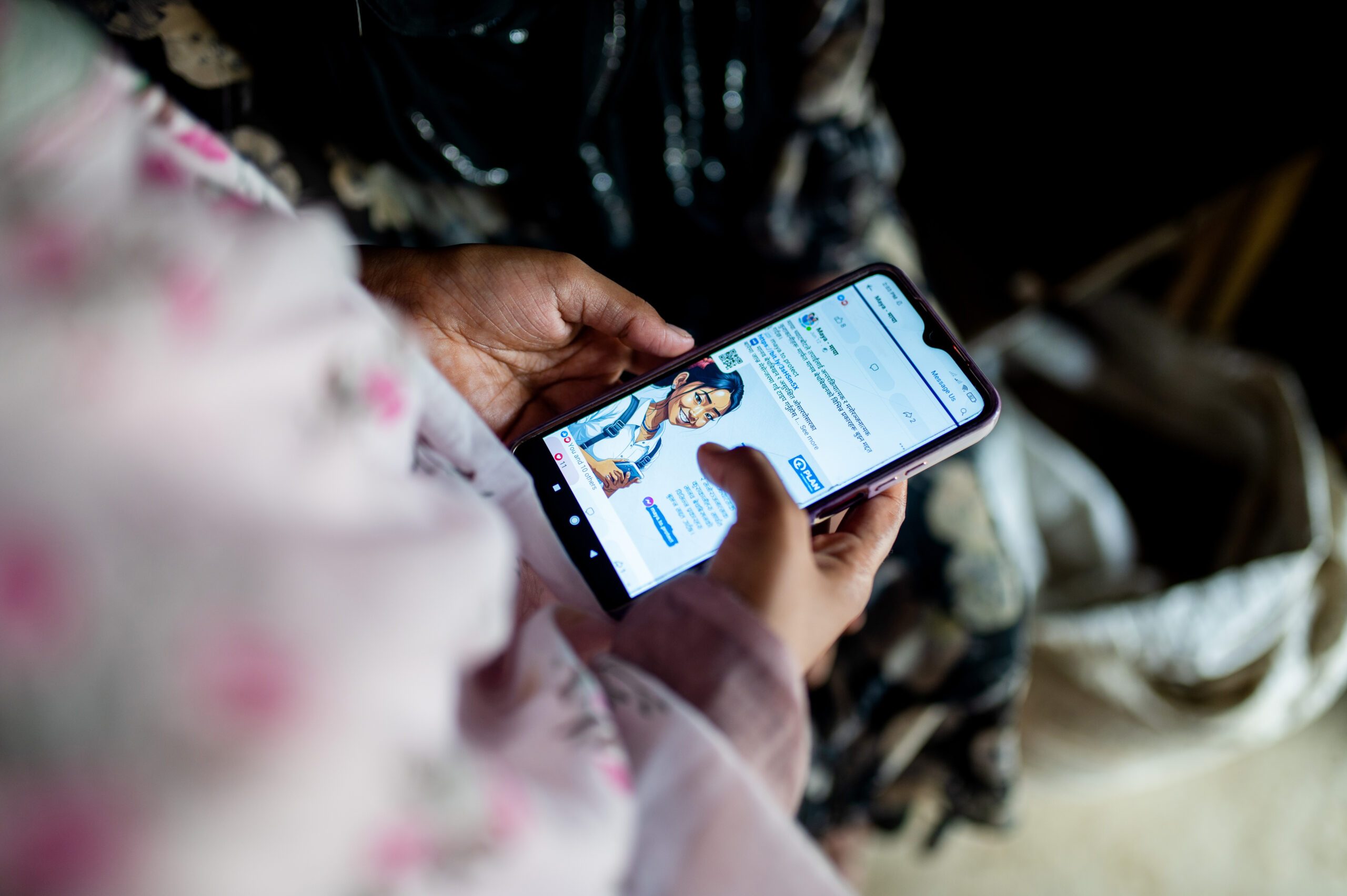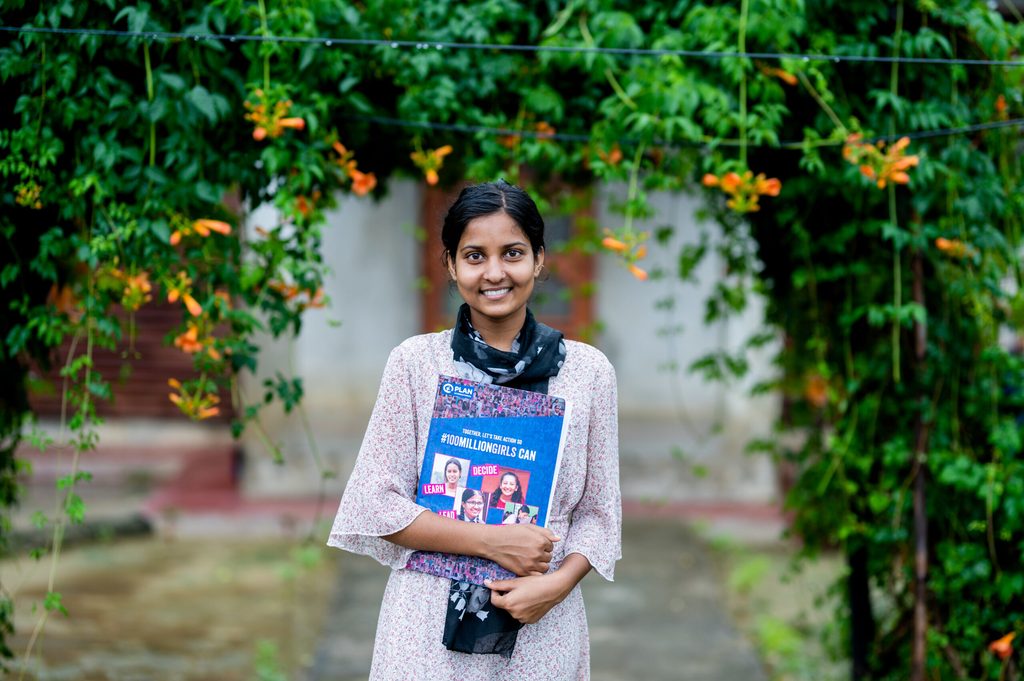Girls’ rights youth activist is making change happen
Girls’ rights activist Rahimat’s multiple campaigns have led to big changes within her community, including a reduction in early marriages and child trafficking, and improved online safety and education for girls. She isn’t stopping there; she intends to amplify this nationwide.
It is not typical for girls to speak up in Rahimat’s village in Western Nepal. Here, girls are often discouraged from pursuing education and instead pushed towards early marriage. But 18-year-old Rahimat is determined to be a voice for those who cannot advocate for themselves.
Coming from a remote community, Rahimat was fortunate to have supportive parents who valued her education. She stood out as one of the few in her community who pursued further studies and is now preparing for medical school entrance examinations.
Championing girls’ rights
Frustrated by the limited educational opportunities for girls in her community, Rahimat aims to use her education to fight against the restrictive norms that hold girls back. She sees education as a path to freedom and is motivated by the dreams and aspirations of the girls around her.
“The girls are not free to dream of their own futures. This put a question in my head, and I wanted to gather more information about this,” she explains.
“The girls are not free to dream of their own futures. This put a question in my head, and I wanted to gather more information about this.”
Rahimat
Rahimat’s involvement in a children’s club by Plan International has equipped her with a deep understanding of children’s rights, local governance, and politics. This knowledge has become a powerful tool in her advocacy for girls’ rights.
As the vice president of the National Adolescent Girls Network, Rahimat helps girls from various districts come together to discuss the issues affecting them. They receive training, leadership workshops, and campaign planning skills, which they later share in their communities.

Rahimat’s primary concerns are child marriage and human trafficking, prevalent issues in her remote village. Located near the Indian border, girls and children are often lured with false promises and end up trapped into forced labour or are sexually exploited. Rahimat’s campaign focuses on improving digital literacy to protect vulnerable children from online predators.
As a Plan International youth ambassador, Rahimat collaborates on the ProTEcT (prevention, tracking, education and transformation) project, creating tools such as the Facebook messenger ChatBot named Maya ChatBot. This tool alerts and educates children and their families about online risks, making the internet a safer place for them.
Challenging norms
Advocating for girls’ rights means Rahimat visits families in her community, a novel approach met with resistance. Her persistence, along with support from her family, gradually changed perceptions in her community.
Using data and facts, Rahimat educates her community about the benefits of girls’ education, not only for the girls themselves but for the entire community. Engaging local religious leaders and using various media channels, she amplifies her message nationwide.
“Before, some international non-governmental organisations or local authorities had tried this approach, but we thought it would have more impact coming from us children,” she says. Initially, she was scolded, and her parents were advised by others to stop their daughter’s outreach work.
Thanks to Rahimat and other activists, systems are now in place to report child marriage and human trafficking. More people are aware of these issues, and rescue programs have been initiated by the local government in collaboration with Plan International.
“In my community girls don’t always leave the house alone. I don’t shy away from speaking up. I compare this with other communities where girls are active, they dream and have the freedom to say they can go to school and become doctors and nurses,” she says.

Resource challenges
Despite the progress, limited funding and resources make campaigning challenging. Rahimat often uses her lunch money to buy supplies and faces a lengthy journey to request resources from municipal offices.
“I am very proud of myself and my team at the children’s club and the adolescent girls’ network. It has supported me and provided me with all the information I require for my activism. It’s hard to make change and it can take years. I want to see big changes and when it comes to these social issues, it can be tedious and I get frustrated but I can always reach out to the network for support and motivation.”
“Whenever I find an issue, I cannot keep silent or quiet, I have to act on it. This is my spirit. I want to support girls who are having issues and help them convince their parents to keep them in school. I want to be a role model and once I have my degree, I want to go back to my community to inspire other girls and even their parents in my district and beyond,” she concludes.
“Whenever I find an issue, I cannot keep silent or quiet, I have to act on it. This is my spirit. I want to support girls who are having issues and help them convince their parents to keep them in school. I want to be a role model and once I have my degree, I want to go back to my community to inspire other girls and even their parents in my district and beyond.”
Rahimat
As Rahimat prepares for her medical entrance exams, her hope is to complete her degree in Kathmandu and return to her community for social work and continued advocacy. She aspires to be a role model, inspiring girls and their parents to prioritise education in her district and beyond.
Rahimat’s spirit is unwavering; she cannot stay silent when she encounters an issue. She is determined to support girls facing challenges and convince parents to keep their daughters in school. Her ultimate goal is to create lasting change and inspire future generations.
Categories: Campaigns, Youth empowerment



